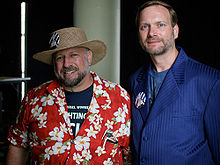Project gutenberg
Project Gutenberg (PG) was developed by Michael Hart in 1971 with the goal of creating a library of free e-books from books that already exist physically. These e-books have since been available on the Internet. They are free. The books can be read in different formats such as Kindle, EPUB, even ASCII, UTF-8 or read online in HTML format.
The texts provided are mainly in the public domain, either because these rights have already expired and the work is in the public domain, or because the authorization of the author or copyright holder was obtained. There are also some copyrighted texts that Project Gutenberg has made available with the permission of its writers. The project was named after the 15th-century German printer Johannes Gutenberg, who invented the movable-type printing press. As of November 2009, Project Gutenberg had almost 30,000 books in its collection (25,496 in English, 1,496 in French, 364 in Portuguese, and 267 in Spanish). In October 2015, it had more than 50,000 books.
Description
This is the oldest digital library, dating back to 1971. Project Gutenberg focuses on historically important literature and reference works. The motto of the project is "let's cut the bars of ignorance and illiteracy", chosen because the project hopes to continue the work of spreading public literacy and gratitude towards our literary heritage that public libraries began at the beginning of the century. xx. Whenever possible, Gutenberg editions are released in ASCII format. They are also released in other formats, as long as they are submitted by volunteers. For a few years back, there had been discussions about whether it would be convenient to use some XML-like format, although there wasn't much progress then. Popular formats that are not easily editable, such as PDF, were not considered appropriate, in keeping with the general goals of the Gutenberg project, although many have been added to the collection. Books are currently being published in several of the electronic formats for reading on PDA devices and eBook readers, and also in audiobook format.
Although most Project Gutenberg releases are in English, there are also a significant number of documents in German, French, Italian, Spanish, Dutch, Finnish, and Chinese, as well as other languages. All Project Gutenberg text can be obtained and redistributed by readers free of charge: the only restriction on redistribution is that the text must remain unchanged and must contain the Project Gutenberg heading. If the redistributed text has been modified, the file should not be tagged as Project Gutenberg text.
The project, which has released more than 30,000 eBooks (as of November 2009) almost entirely produced by volunteers online, is still active. Anyone can be a proofreader and offer to proofread, for example, one page a day. This is done via the helper but separate distributed proofreaders" site.
History
In 1971, Michael Hart was a student at the University of Illinois. Hart gained access to one of the main computers in the university's Materials Research Laboratory, the Xerox Sigma V. This special computer turned out to be one of 15 nodes in the computer network that later became the Internet. Hart believed that one day computers would be affordable to the general public and decided to make works of literature freely available electronically. Since he had a copy of the United States Declaration of Independence in his backpack, this became the first electronic text of Project Gutenberg.
By the time the University of Illinois stopped hosting Project Gutenberg in the mid-1990s, Hart was already running it from Illinois Benedictine College. He later reached a similar agreement with Carnegie Mellon University, which agreed to manage the finances of Project Gutenberg. But it was not until 2000 that the Gutenberg project was officially recognized as an independent legal entity, currently being a non-profit corporation legally incorporated in Mississippi.
Compared to the early days of the project, the time required to digitize a book has decreased dramatically. Texts are no longer typed directly, but are converted to text with the help of OCR (Optical Character Recognition) software. Subsequently the texts have to be thoroughly corrected and edited in several stages by various proofreaders before they can be added to the collection.
Open collaboration
As in other solidarity projects of the digital age, Project Gutenberg is open to collaboration. On his website, he redirects those who want to collaborate with him to Distributed Proofreaders, an organization different from Project Gutenberg but dedicated exclusively to carefully digitizing books that will later be distributed from him. It is currently its largest contributor of digitized works.
Contenido relacionado
Thebes
Hesiod
Annex: XV edition of the Goya Awards
